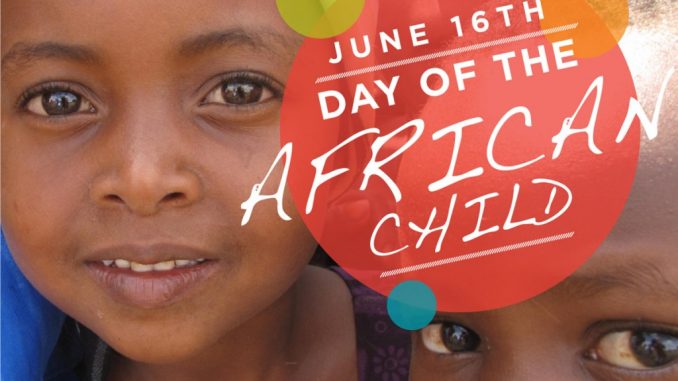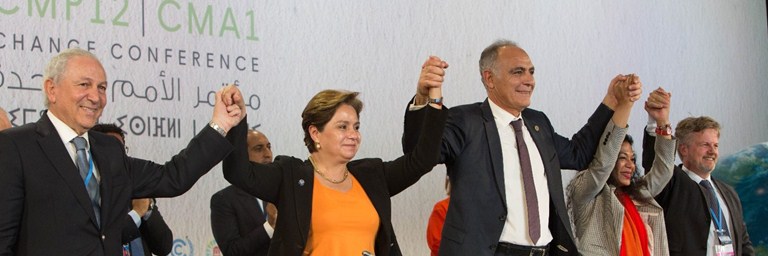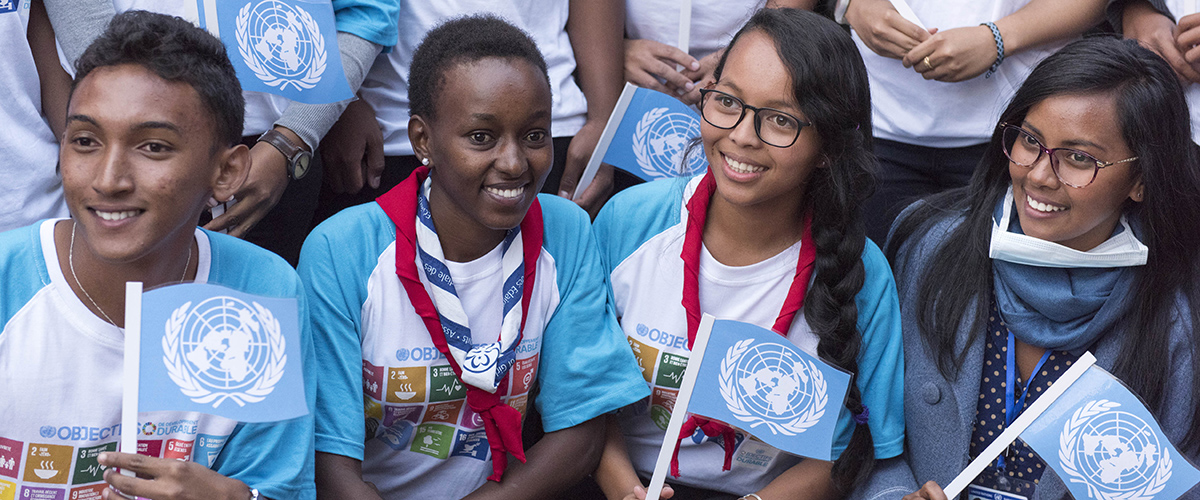 The Day of the African Child has been celebrated on June 16 every year since 1991, when it was first initiated by the OAU Organisation of African Unity. It honors those who participated in the Soweto Uprising in 1976 on that day. It also raises awareness of the continuing need for improvement of the education provided to African children.
The Day of the African Child has been celebrated on June 16 every year since 1991, when it was first initiated by the OAU Organisation of African Unity. It honors those who participated in the Soweto Uprising in 1976 on that day. It also raises awareness of the continuing need for improvement of the education provided to African children.
In Soweto, South Africa, on June 16, 1976, about ten thousand black school children marched in a column more than half a mile long, protesting the poor quality of their education and demanding their right to be taught in their own language. Hundreds of young students were shot. More than a hundred people were killed in the protests of the following two weeks, and more than a thousand were injured.
On June 16 every year, governments, NGOs, international organisations and other stakeholders gather to discuss the challenges and opportunities facing the full realization of the rights of children Africa. For 2014, the theme chosen returns to the roots of the movement: A child-friendly, quality, free, and compulsory education for all children in Africa
Source: Text: Wikipedia Image: Day of African Child
The Day of the African Child (DAC) 2017 will be commemorated on the theme “The 2030 Agenda for Sustainable Development for Children in Africa: Accelerating protection, empowerment and equal opportunity”. (The African Child Information Hub)
 2017 Theme: “Our oceans, our future”
2017 Theme: “Our oceans, our future” Water is the essential building block of life. But it is more than just essential to quench thirst or protect health; water is vital for creating jobs and supporting economic, social, and human development.
Water is the essential building block of life. But it is more than just essential to quench thirst or protect health; water is vital for creating jobs and supporting economic, social, and human development. The International Day of Happiness (known as Happiness Day) is celebrated throughout the world on the 20th of March. The International Day of Happiness (“Happiness Day”) was founded by United Nations adviser Jayme Illien on June 28, 2012, when all 193 member states of the United Nations General Assembly unanimously adopted UN resolution 66/281 The International Day of Happiness, following a multiyear campaign initiated in 2011 by the Illien Global Public Benefit Corporation.
The International Day of Happiness (known as Happiness Day) is celebrated throughout the world on the 20th of March. The International Day of Happiness (“Happiness Day”) was founded by United Nations adviser Jayme Illien on June 28, 2012, when all 193 member states of the United Nations General Assembly unanimously adopted UN resolution 66/281 The International Day of Happiness, following a multiyear campaign initiated in 2011 by the Illien Global Public Benefit Corporation.

